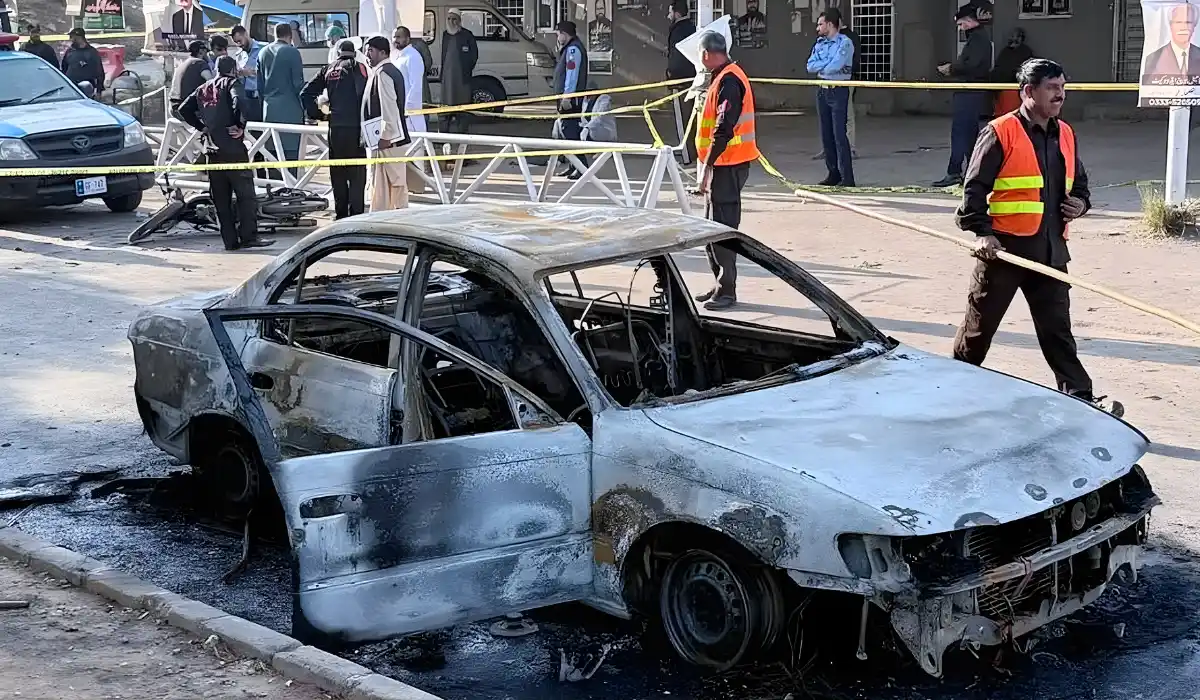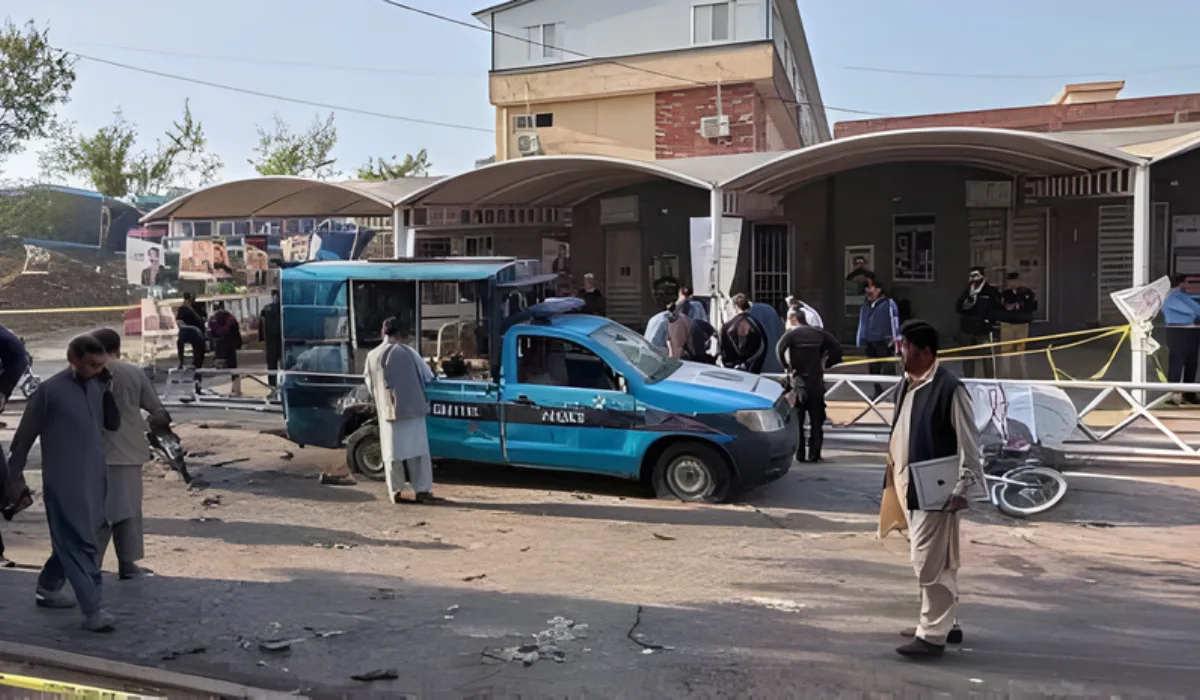In a shocking display of violence, at least 12 people were killed and many more wounded in a suicide bombing outside a court complex in Pakistan’s capital, Islamabad. The attack marks one of the deadliest incidents in the city in nearly a decade and raises serious concerns about escalating militant activity in the region.
What happened: Suicide explosion outside Islamabad court
On Tuesday afternoon (11 November 2025), near the district judicial complex located in the G-11 sector of Islamabad, a suicide bomber attempted to enter the court building. When he failed to gain access, he detonated his explosives near a parked police van outside the gates.
Witnesses described scenes of chaos, flickering flames and smouldering vehicles as people fled the site.

Target & motive: Why the court complex was chosen
The bomber’s initial target was the court premises itself — likely because of the symbolic role courts play in enforcing the state’s legal system. After failing to breach the gate, the attacker detonated near a police vehicle, underlining how security forces and public institutions are increasingly being targeted.
According to reports, the target included judges, lawyers and court-visitors, with militant messaging demanding implementation of strict sharia law.
Responsibility and group claims: Who is behind it?
A breakaway faction of the militant group Tehrik‑e‑Taliban Pakistan (TTP), known as Jamaat‑ul‑Ahrar, claimed responsibility for the attack in its statements. At the same time, Pakistani officials blamed militant elements operating from neighbouring countries, including Afghanistan, and even alleged Indian-linked proxies.
Bigger picture: Why this attack matters
- Rise in militant attacks: Pakistan has seen hundreds of militant operations this year, especially in north-western regions, signalling a resurgent insurgency.
- Capital under threat: Islamabad had not witnessed such a deadly civilian attack in many years — this strike highlights that militants are now striking deeply into the heartland.
- Regional tensions: The bombing adds strain to Pakistan’s already tense relations with Afghanistan and India, raising the possibility of diplomatic or military repercussions

What happens now: Security and government response
Pakistan’s defence minister declared the country in a “state of war” following the attack, calling it a wake-up call for national security.
Already, security has been beefed up in Islamabad and surrounding areas; investigations are underway to identify all those behind the plot and to check for possible safe havens and support networks abroad.
Impact on everyday people and institutions
- Law-and-order shock: People going about their normal routines — including lawyers, clerks and visitors to the court — were caught in the blast zone, undermining public sense of safety.
- Psychological effect: When places that are meant to represent justice and stability are targeted, fear and uncertainty spread beyond the immediate victims.
- Operational disruption: The court complex and nearby areas will now face heightened security checks, delays and restrictions — affecting many innocent people’s daily lives.
Key facts at a glance
- Date: 11 November 2025
- Location: G-11 sector, Islamabad outside district judicial complex
- Casualties: 12 killed, 27+ injured
- Attacker: Suicide bomber, detonated near police vehicle after failing to enter court gates
- Claimed by: Jamaat-ul-Ahrar (splinter of TTP)
- Pakistan’s response: Defence minister declares “state of war”; security tightened
🚨 BREAKING 🚨
— TIMES ALERTS (@TimesB29989108) November 14, 2025
Pakistan claims Islamabad bomber was Afghan national 😁
At least 12 people were killed on November 11 when a suicide bomber detonated his explosives near the entrance of a court in the G-11 area of the capital.#Pakistan#BreakingNews pic.twitter.com/Zhgka2Tpni
Why this matters for Pakistan and the region
This attack is significant not just because of its human cost, but because it signals a widening of the battlefield. What was once concentrated in remote border areas is now hitting the capital city’s heart. For Pakistan, that means both a security and credibility challenge. For the region, it illustrates how insurgency, state failure and cross-border dynamics intertwine in dangerous ways.









